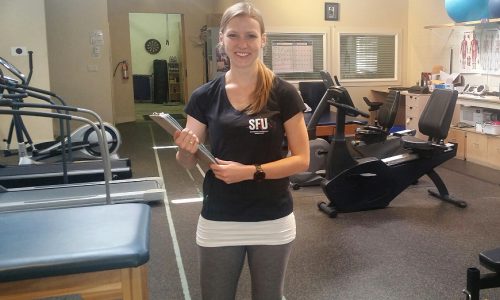
I’m nearly done my first co-op term and it has been a wonderful semester full of growth and new experiences. I have been blessed to land a role that challenges and validates me while being enjoyable, and I’ve been lucky enough to be able to work in a healthy and supportive work environment with inspiring individuals. The role I play in the agency entails wearing different hats every day – and sometimes multiple hats at once. I hope that the short experience I have had will offer a glimpse into a project manager’s (PM’s) role, specifically in the social media and marketing industry.
Here are a few key things I do as a project manager for a social media marketing agency:
Management…Obviously.
Initially, I thought “Okay. I just have to keep track of what’s been done and what hasn’t”. I was wrong. Project management entails balancing three very important factors: budget, time, and scope [of work]. This may seem simple – but every factor is intertwined and when one changes, the others are also affected. In order to keep track of these three things, I created a project timeline for each one of my clients. Here, all is accounted for: tasks that need to be done and who is responsible for it, completed tasks, the current status of the task/project, and anything important that the rest of the team needs to be aware of. It’s important that each member of the team not only has access to this sheet but clearly communicates with me when a task has been done so the sheet is constantly being updated, which ensures that nothing gets overlooked or missed. Although it may seem like common sense, clear communication between co-workers has proven to be a necessity.
I’m the Main Point of Contact.
Nearly all deliverables, clarifications, and updates go through me to the client. It has been crucial to solidify good standard operating procedures (SOP’s) internally with the team. I’ll walk you through the process for a video/photo shoot with a client:
1. Plan and Organize
The goal here is to plan a date that works not only between me and the client, but the photographer(s), model(s), and the client (if they choose to show up or if it’s necessary for them to be there). Location scouting comes into play at this step as well – and making sure we have backup locations in case the weather turns for the worse (we do live in Raincouver). This step also entails scouting for the right type of model(s) that will fit the client’s brand and the style of the shoot.
2. Creative Brainstorming
During this step, my team, along with the client, will come up with the direction of the shoot. After the meeting, it is my job to create a mood board, or collaboratively create one with our photographer. It’s crucial to keep the client in the loop in each step – this creates a good working relationship with the client! With that being said, I will send the mood board off to the client (and the photographer if they were not involved) to make sure each party is on the same page regarding the creative direction and execution.
3. Revisions and Approvals
Things can get prolonged and complicated when it comes to post-production. Clients can have the tendency to make revision after revision without understanding the scope of the work being done. Revisions are sent to me and then communicated to our editor. Once revisions are made, I send the revised photos/videos back to the client for (hopefully) an approval. Copywriting projects follow the same procedure. It’s important to keep track of the number of revisions and hours that have gone into them so that we stay within budget and are made aware of extra charges that need to be made.
At the end of the day, the ultimate goal is to ensure that each client has been kept in the loop, my checklist has been completed, and everyone in the team has done their collaborative part. This has been a quick look into the experience of a project manager, and what a typical day/project might look like. I hope I was able to give you an idea of just how enjoyable my time in co-op was.
Beyond the Blog
-
For more opportunities like Bethany's, visit the Communications co-op page!















